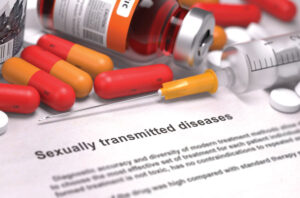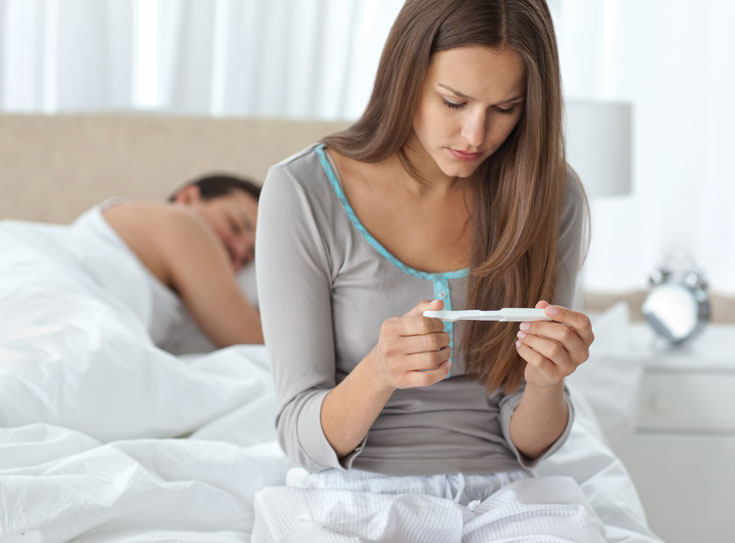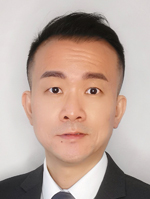From a medical point of view, men and women share a lot of similarities in terms of body organs and functions. Many health issues such as asthma, hypertension, diabetes, cardiovascular disease, lung cancer, and colon cancer can happen in both male and females.
Although, some of these diseases that are shared by both genders can be more prone to a particular gender. For example, gallstones, depression, osteoporosis, irritable bowel syndrome are more common in women than in men.
However, there are particular health issues that only concern women due to their unique female reproductive organs namely the uterus, cervix, fallopian tubes, ovaries, vagina and vulva.
Health issues can crop up at any time during a woman’s life. With that said, many reproductive health issues occur between the ages of 15 and 44. But, serious conditions such as cancer or heart disease are more likely to develop during midlife, from age 50 onwards.

HEALTH PROBLEMS IN TEENS
Most major female health problems don’t start during teenage years. There may be complaints presented to gynaecological clinics involving menstrual problems such as dysmenorrhea and irregular periods. These problems can be effectively treated with NSAIDs and birth control pills to regulate the menses.

HEALTH PROBLEMS IN 20S
As most females become sexually active in their 20s, sexually transmitted diseases (STDs) is the main concern during this phase. Viruses such as HIV, Hepatitis B, Hepatitis C, Herpes and HPV are transmitted via unprotected sex.
Protection is key to protect women from being infected with such viruses. When used correctly and consistently every time couples have sex, condoms have been shown to be 98% effective against the transmission of STDs. There is also availability of Hepatitis B and HPV vaccinations to provide women with active immunity against these viruses. Some sexually transmitted infections such as Gonorrhoea and Chlamydia can result in damage of the tubal function and affect fertility if not treated promptly.
HEALTH PROBLEMS IN 30S
Many health problems women face in their 30s involve fertility, and complications resulting from pregnancy and childbirth. Fertility rate starts to decline after 30 and miscarriage rate starts to rise. Fibroids and endometriosis which affect up to 10-15% of women are also commonly diagnosed in this age group.
Fibroids can result in painful periods, heavy bleeding and miscarriage while endometriosis can result in dysmenorrhea, chronic pelvic pain, adhesion and tubal damage which can make natural conception difficult.
Couples who are keen to have their own children but suffer from these fertility issues should not delay seeking an assessment and counselling from their gynaecologist or fertility specialist. Couples should also be aware that the successful rate of IVF declines when women ages.

HEALTH PROBLEMS IN 40S
As endometrial cancer risk rises after age 45, it is important for women who have heavy periods to get endometrial assessment to exclude malignancy.
Women in their late 40s also frequently experience perimenopausal symptoms such as mood irritability, hot flashes, vaginal dryness and irregular periods. This is due to ovaries releasing fewer eggs and declining oestrogen and progesterone levels.
 HEALTH PROBLEMS IN 50S AND OVER
HEALTH PROBLEMS IN 50S AND OVER
Common health issues in this age group include gynaecological malignancies, urinary incontinence, vaginal dryness and pelvic organ prolapse.
As most gynaecological cancers frequently occur during this phase, any suspicious health concerns, such as postmenopausal bleeding, ovarian cyst, uterine mass, cervical lesion or a breast lump, warrants further evaluation to exclude malignancy.
With HPV vaccination and regular pap smear examinations, most cases of cervical cancer can be prevented. The same goes for regular breast self-examination and mammogram screenings, after the age of 40, for early detection of breast cancer.
The importance of a healthy lifestyle should not be overlooked. Obesity, harmful eating habits, constant emotional stress and practising a sedentary lifestyle can lead to a cascade of health issues in women.
 Dr Soon Khai Cherng (MRCOG,UK)
Dr Soon Khai Cherng (MRCOG,UK)
Consultant Obstetrician and Gynaecologist
Columbia Asia Hospital – Miri


